3 Pass Boiler: Engineering Precision for Industrial Thermal Reliability
In the complex ecosystem of industrial steam generation, the 3 pass boiler configuration has emerged as a definitive solution where thermal efficiency, spatial pragmatism, and operational resilience converge. Unlike single or dual-pass designs constrained by heat recovery limitations, this architecture guides flue gases through three distinct thermal exchange phases—maximizing energy extraction while maintaining compact footprints. The first pass occurs in the combustion chamber, the second through a reversal tube bundle, and the third via optimized flue gas exit pathways. This methodology proves indispensable across food processing, textile manufacturing, and chemical sectors where consistent steam quality and fuel economy dictate operational viability.
From noodle production requiring precise temperature control to pharmaceutical sterilization demanding steam purity, the 3 pass boiler’s structural intelligence addresses a fundamental industry challenge: delivering high-capacity thermal output within evolving regulatory landscapes. At the forefront of this engineering discipline stands ZOZEN BOILER, whose decades of specialization in multi-pass configurations have redefined reliability standards for global manufacturers navigating energy transitions.
ZOZEN’s WNS Series: Mastery of Three-Pass Thermal Dynamics
The WNS series oil-fired/gas-fired steam boilers embody ZOZEN Boiler’s excellence in three-pass boiler engineering, designed specifically for facilities prioritizing space efficiency and emissions compliance. Their horizontal, monolithic structure integrates the combustion chamber, tube bundle, and flue gas outlet within a single cylindrical shell, eliminating the need for complex external ducting and significantly reducing footprint compared to traditional designs.
After fuel is atomized by the burner, the resulting flare fills the fully corrugated furnace, transferring radiant heat through the furnace wall. This represents the first pass. The high-temperature flue gases generated by combustion converge within the regenerative chamber and then enter the second pass, the threaded flue tube bundle area. Through convection heat transfer, the flue gas temperature gradually decreases before reaching the front flue box. From there, they enter the third pass, the smooth tube bundle area. They then pass through the rear flue box, into the economizer and chimney, and are finally discharged into the atmosphere. This series of products features safety, reliability, high efficiency, energy conservation and environmental protection, easy maintenance, durability, and fully automatic intelligent control.
This three-pass boiler configuration achieves a thermal efficiency exceeding 98% through three interrelated innovative technologies. First, the WNS series horizontal internal combustion boiler is a shell-type wet-back oil/gas-fired boiler, eliminating the thermal stress cracking common in dry-back designs and extending its service life during circulating operation. Second, the corrugated furnace design increases the heat-absorbing surface while also resisting deformation caused by thermal expansion. Third, the integrated economizer recovers waste heat from the flue gas, reducing exhaust temperatures compared to systems without economizers. Crucially, the WNS utilizes low-NOx burners and advanced low-NOx combustion technology, achieving NOx emissions of ≤30mg/Nm³, contributing to its low carbon footprint and environmental protection. Overall, the combustion efficiency of the WNS oil/gas boiler ensures stable performance in a three-pass boiler, where thermal reliability directly impacts product quality.
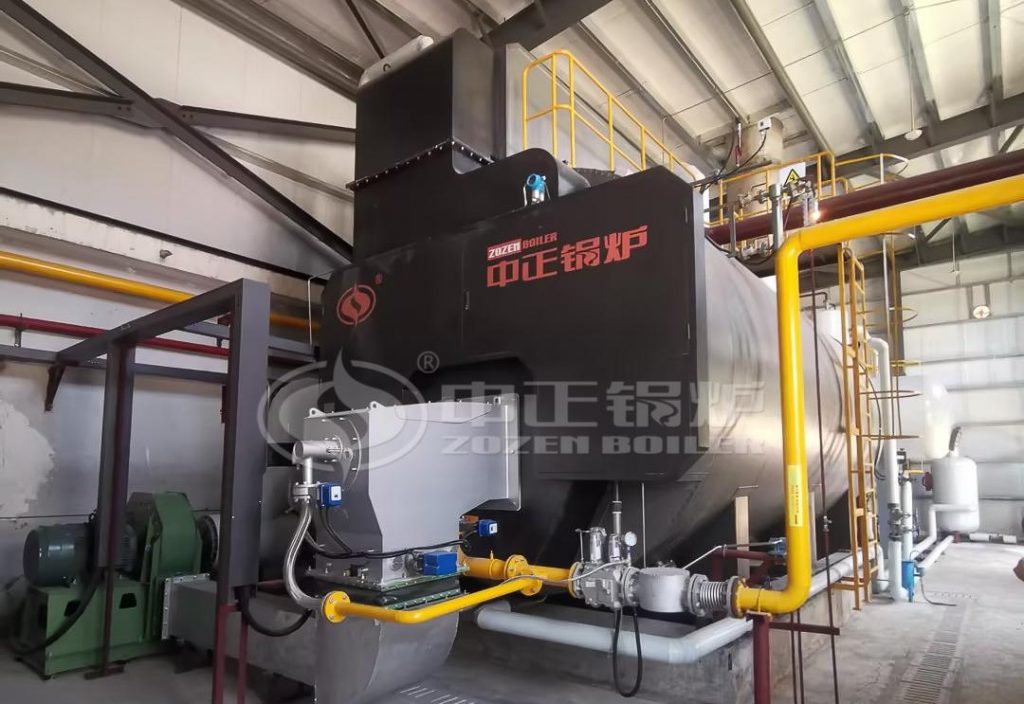
Powering Noodle Production Excellence
Baixiang Food—a legacy Chinese producer of instant noodles—faced critical thermal challenges as production scaled across multiple facilities. Their extrusion and steaming processes demanded uninterrupted steam at precise pressure-temperature profiles, where even minor fluctuations compromised noodle texture and cooking consistency. Conventional boilers struggled with inconsistent combustion and rising maintenance costs, threatening production schedules for time-sensitive consumer goods. After comprehensive evaluation, Baixiang selected ZOZEN’s WNS series 20-ton gas-fired 3 pass boiler—a decision rooted in technical alignment with their operational reality.
The implementation addressed two core imperatives. First, the wave-shaped furnace and corrugated flue tubes maximized heat transfer efficiency while accommodating the facility’s spatial constraints, enabling installation within existing utility rooms without costly structural modifications. Second, the integrated low-nitrogen burner system achieved NOx emissions ≤30mg/Nm³, meeting stringent local air quality regulations without compromising thermal output. Crucially, the three-pass design maintained steam stability during load transitions, ensuring consistent noodle quality across high-volume production runs. ZOZEN’s engineering team conducted on-site commissioning with a focus on operator training tailored to food manufacturing cycles, teaching technicians to optimize combustion for regional gas variations. When seasonal ambient temperature shifts affected startup dynamics, engineers refined preheating sequences via remote diagnostics within 48 hours—avoiding production delays.
Why 3 Pass Boiler Selection Defines Sustainable Competitiveness
For an industry undergoing transformation, the three-pass boiler is more than just a thermal device; it is a strategic enabler for ensuring environmental compliance and product quality. The wetback design of the WNS series boiler avoids thermal stress failures common in dryback boilers, minimizing unplanned downtime in facilities with frequent load changes. For workshops with limited space, the three-pass boiler’s monolithic structure enables it to be installed in a retrofit environment without expensive equipment modifications – which is crucial when building budgets are limited. Crucially, its maintenance architecture minimizes production interruptions; technicians can access the entire combustion chamber through a front-mounted inspection door, reducing cleaning time compared to vertical designs that require an overhead crane.
When evaluating 3 pass boiler options, discerning clients recognize that premium engineering prevents hidden costs: reduced fuel consumption from sustained high efficiency, extended component lifespan through stress-mitigated design, and minimized downtime via predictive maintenance. In markets where production continuity dictates competitiveness—like food processing or chemical manufacturing—this calculus proves decisive. The 3 pass boiler conversation must evolve beyond procurement spreadsheets to encompass operational continuity, where every hour of uptime translates to tangible revenue.
As industries confront decarbonization pressures, the 3 pass boiler increasingly serves as a pragmatic pathway to sustainability. ZOZEN BOILER’s commitment to context-aware engineering—evident in low-NOx systems for urban facilities or spatially optimized designs for retrofit environments—ensures thermal solutions deliver sustained value where it matters most: on the factory floor. For enterprises seeking partners who view boiler deployment as the beginning of a collaborative relationship, ZOZEN offers not just equipment, but engineered confidence. When your reputation depends on every product’s perfection, choose a 3 pass boiler partner who understands that steam quality is woven into product quality. In sectors where thermal reliability defines market leadership, ZOZEN transforms 3 pass boiler selection from a technical decision into a strategic commitment to operational excellence.
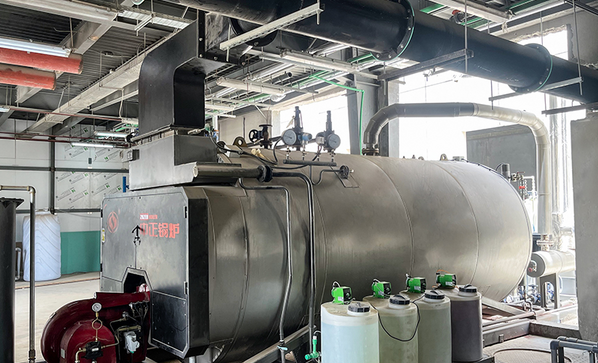
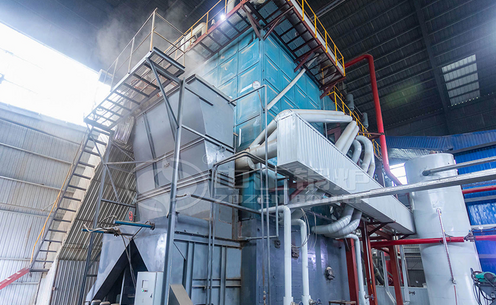
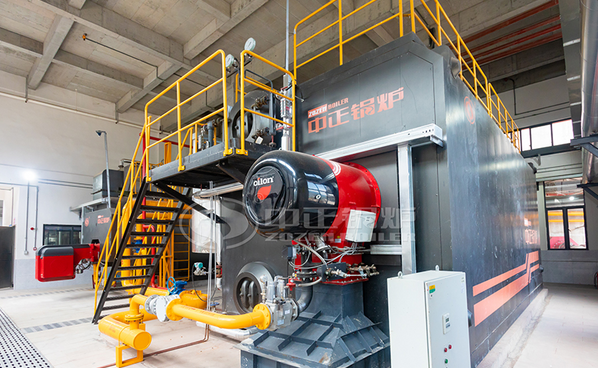
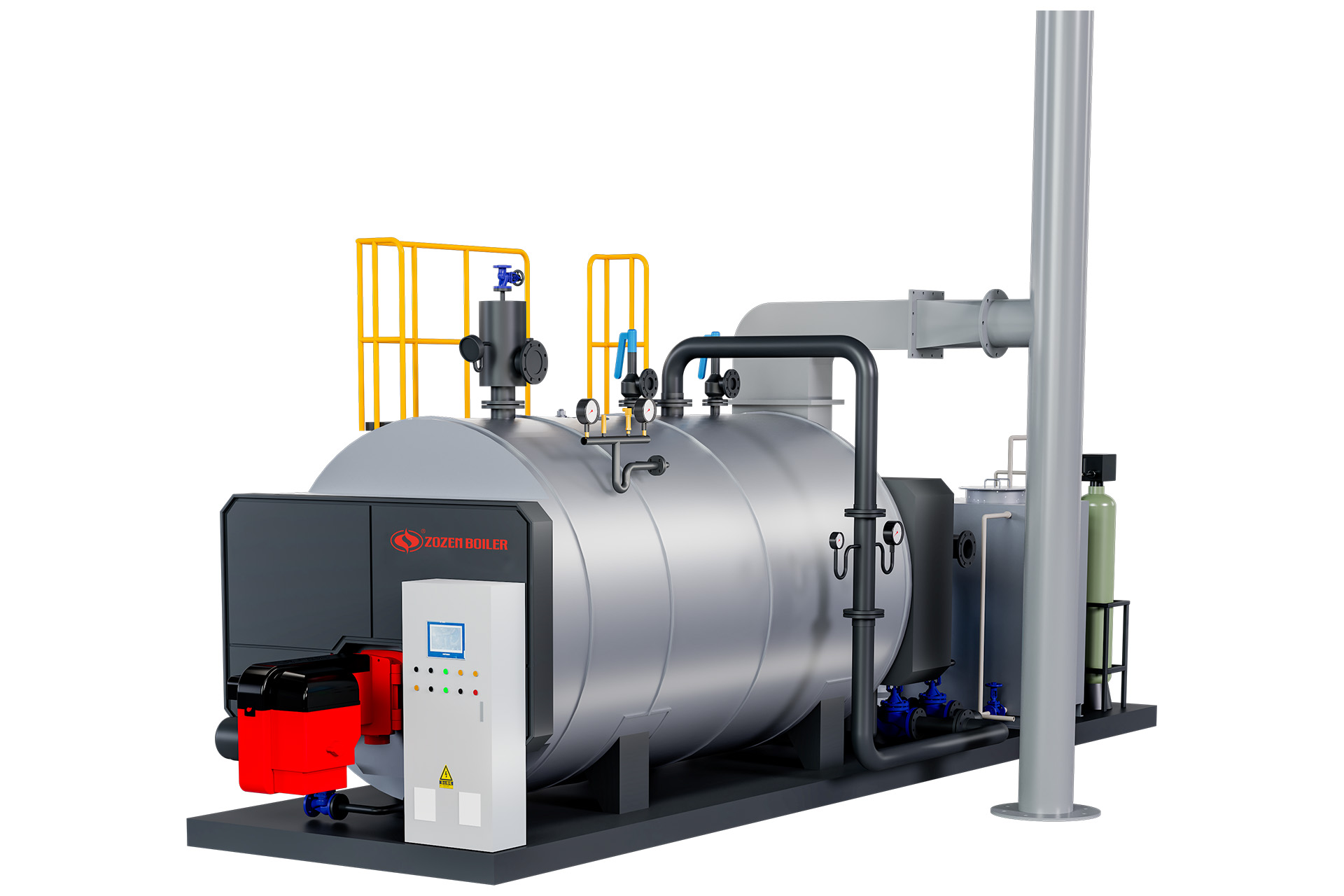
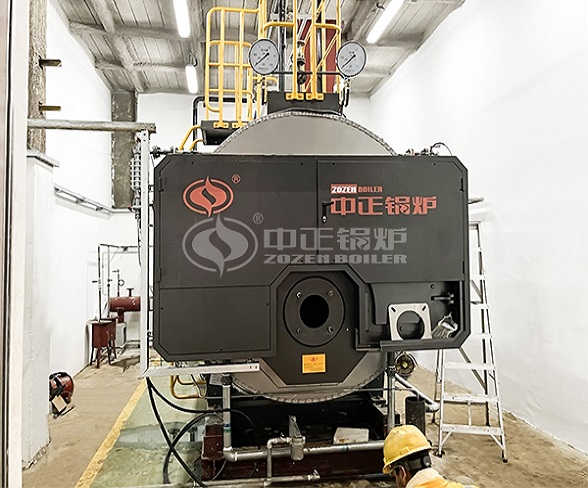
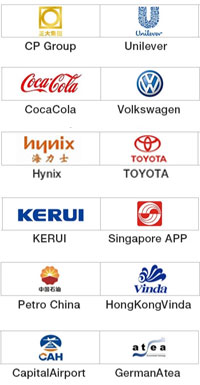

LEAVE A MESSAGE
For all inquiries, please fill in the form below (* are required) to send us a brief message, and we will get back to you as soon as possible.